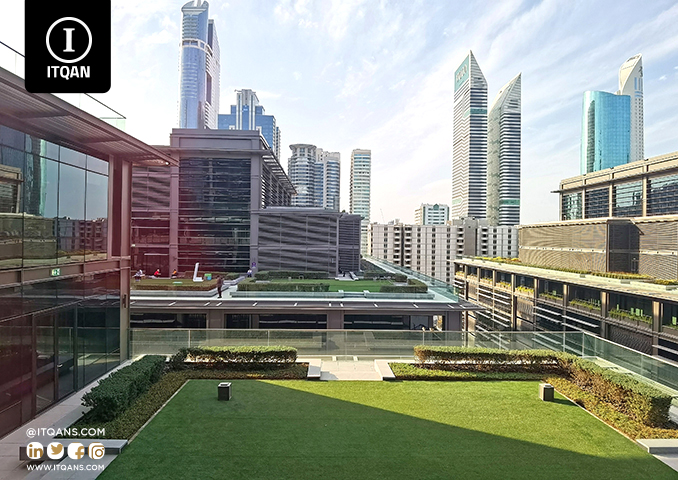Ajman free zone companies, one of the fastest-growing and most dynamic free zones in the United Arab Emirates (UAE), offers a fertile ground for businesses seeking to establish a presence in the Middle East. Located in the emirate of Ajman, this free zone has become a magnet for entrepreneurs and multinational corporations alike, thanks to its strategic location, business-friendly policies, and comprehensive range of services.
Since its inception, Ajman Free Zone has played a pivotal role in driving economic growth and diversification in the UAE, fostering an environment that encourages innovation, investment, and international trade. It offers a diverse range of business activities, from trading and services to industrial manufacturing, making it an attractive destination for various types of enterprises.
In this article, we will delve into the rich history and establishment of Ajman Free Zone, explore its strategic advantages, and highlight the numerous benefits it offers to businesses. We will also provide a detailed examination of the different types of companies that can be established within the free zone and elucidate the process of setting up a business, including registration, licensing, and associated costs. Whether you are a budding entrepreneur or an established corporation looking to expand, this comprehensive guide will provide valuable insights into why Ajman Free Zone is an ideal choice for your business endeavors.

جدول المحتوى
ToggleOverview of Ajman Free Zone
Ajman Free Zone (AFZ) is a dynamic and rapidly growing economic hub located in the Emirate of Ajman within the United Arab Emirates (UAE). Established with the primary aim of attracting foreign investment and fostering economic development, AFZ has become a preferred destination for entrepreneurs and businesses from around the globe. This section provides an in-depth look at the history, strategic location, and key benefits of Ajman Free Zone.
A. History and Establishment
Ajman Free Zone was established in 1988 by the Ruler of Ajman, H.H. Sheikh Humaid Bin Rashid Al Nuaimi. The creation of AFZ was part of a broader vision to diversify the emirate’s economy and reduce its dependency on oil revenues. Over the years, AFZ has evolved significantly, expanding its infrastructure and services to meet the needs of a growing number of investors and businesses. Today, it is home to thousands of companies from various sectors, contributing substantially to Ajman’s economic development and positioning it as a competitive player in the global market.
B. Strategic Location
One of the most significant advantages of Ajman Free Zone is its strategic location. Situated at the entrance of the Arabian Gulf, Ajman enjoys excellent connectivity to major international markets. The free zone is just a short drive from Dubai and Sharjah, providing easy access to two of the UAE’s largest cities and their extensive transportation networks, including international airports and seaports. Additionally, Ajman Free Zone is proximate to Ajman Port, which facilitates efficient import and export activities, making it an attractive destination for businesses involved in global trade.
C. Key Benefits
Ajman Free Zone offers a myriad of benefits designed to attract and support businesses of all sizes and industries. Some of the key benefits include:
1. 100% Foreign Ownership: Unlike mainland companies in the UAE, businesses in Ajman Free Zone can be fully owned by foreign investors, providing greater control and flexibility.
2. Tax Incentives: AFZ offers a range of tax incentives, including exemption from personal and corporate income taxes, as well as import and export duties.
3. Cost-Effective Solutions: With competitive setup costs and flexible office solutions, Ajman Free Zone is an affordable option for startups and small to medium-sized enterprises (SMEs).
4. Simplified Business Setup: The free zone provides a streamlined registration process, with minimal bureaucracy and efficient licensing procedures, allowing businesses to start operations quickly.
5. State-of-the-Art Infrastructure: AFZ boasts modern infrastructure, including advanced telecommunication networks, high-quality office spaces, and comprehensive logistics facilities.
6. Support Services: Businesses in Ajman Free Zone have access to a wide range of support services, such as legal advice, banking facilities, and business consultancy, ensuring smooth and successful operations.
In summary, Ajman Free Zone’s rich history, strategic location, and attractive benefits make it an ideal destination for businesses looking to establish a presence in the UAE. The free zone’s commitment to fostering a business-friendly environment continues to drive its growth and success, making it a key player in the region’s economic landscape.

Types of Companies in Ajman Free Zone
Ajman Free Zone (AFZ) attracts a diverse range of businesses due to its strategic location, favorable economic policies, and supportive infrastructure. Companies from various sectors have found a thriving environment in AFZ, each benefiting from the unique advantages it offers. Below, we delve into the primary types of companies that establish themselves in Ajman Free Zone: trading companies, service companies, and industrial companies.
A. Trading Companies
Trading companies form a significant portion of the businesses operating in Ajman Free Zone. These entities engage in import and export activities, leveraging AFZ’s strategic position near key maritime routes and its proximity to major markets in the Middle East, Asia, and Africa. The free zone’s state-of-the-art logistics facilities, including warehouses and distribution centers, provide trading companies with the infrastructure needed to manage their supply chains efficiently.
Key benefits for trading companies in AFZ include:
- Customs Exemptions: Duty-free import and export within the free zone.
- Access to Markets: Proximity to Ajman Port and major UAE airports.
- Efficient Licensing: Streamlined licensing procedures tailored for trading activities.
B. Service Companies
Service companies also find Ajman Free Zone to be a conducive environment for growth and expansion. These businesses span a wide range of sectors, including consultancy, IT services, financial services, and marketing agencies. The free zone’s modern office spaces, coworking environments, and business centers provide a professional setting for service-oriented enterprises.
Benefits for service companies include:
- Flexibility: Options to lease office spaces, virtual offices, or coworking spaces.
- Supportive Ecosystem: Access to a community of professionals and networking events.
- Ease of Setup: Simplified registration processes and minimal capital requirements.
C. Industrial Companies
Ajman Free Zone is also home to numerous industrial companies, which benefit from the free zone’s robust infrastructure and supportive regulatory framework. These companies are involved in manufacturing, assembly, and processing activities across various industries, including textiles, food and beverages, and electronics. The availability of industrial land plots, along with built-to-suit facilities, allows these companies to tailor their operations to their specific needs.
Advantages for industrial companies in AFZ include:
- Infrastructure: Ready-to-use warehouses, storage facilities, and industrial units.
- Cost Efficiency: Competitive rental rates and operational costs.
- Expansion Opportunities: Scalable options for businesses looking to grow their operations.
Setting Up a Company in Ajman Free Zone
Establishing a business in the Ajman Free Zone (AFZ) is a streamlined and efficient process, designed to attract foreign investors and entrepreneurs by offering a range of incentives and a supportive business environment. This section will guide you through the key steps involved in setting up a company in the AFZ, including the registration process, licensing requirements, and associated costs and fees.
A. Registration Process
The first step in setting up a company in the Ajman Free Zone is to complete the registration process. This involves several stages:
1. Initial Consultation and Selection of Business Activity: Prospective investors are advised to have an initial consultation with AFZ authorities or an authorized agent to understand the various business activities permitted in the free zone. This helps in selecting the most suitable business activity for the intended operations.
2. Submission of Application: The next step is to fill out and submit the business application form, along with the required documentation. This typically includes copies of passports for shareholders and directors, a business plan, and proof of residence.
3. Approval and Issuance of Initial Approval Certificate: Once the application is reviewed and approved, an Initial Approval Certificate is issued. This certificate allows the investor to proceed with further steps, such as leasing office space and obtaining necessary licenses.
4. Leasing Office Space: Investors are required to lease an office space or warehouse within the free zone. The AFZ offers a variety of options, including executive offices, warehouses, and land for development, all at competitive rates.
5. Signing Legal Documents: After securing office space, the investor must sign legal documents, including the Memorandum of Association (MOA) and the lease agreement. These documents formalize the establishment of the company.
6. Issuance of Business License: Following the completion of the above steps, the final business license is issued. This license allows the company to legally operate within the Ajman Free Zone.
B. Licensing Requirements
The AFZ offers various types of licenses tailored to different business activities. The main categories include:
1. Trading License: This license is for companies involved in the import, export, and distribution of goods. It permits the holder to trade specified items within the UAE and internationally.
2. Service License: This license is ideal for companies providing professional services such as consulting, IT, marketing, and other specialized services.
3. Industrial License: This license is for businesses engaged in manufacturing and industrial activities. It allows the holder to produce, assemble, and package goods.
Each type of license has specific requirements and may require additional documentation or approvals depending on the nature of the business activity.
C. Costs and Fees
Setting up a company in the Ajman Free Zone is cost-effective compared to other free zones in the UAE. The main costs and fees include:
1. Registration Fees: These are one-time fees paid at the time of company registration. They cover the processing of the application and issuance of the initial approval certificate.
2. License Fees: Annual fees are payable for maintaining the business license. The amount varies depending on the type of license and the business activity.
3. Office Lease Fees: The cost of leasing office space or warehouses within the free zone. Rates are competitive and vary based on the size and location of the premises.
4. Visa Fees: Companies in the AFZ are entitled to obtain residency visas for their employees. Visa fees include application processing, medical examinations, and Emirates ID issuance.
5. Other Miscellaneous Fees: These may include fees for document attestation, bank account opening, and other administrative services.
By understanding and following these steps and requirements, investors can efficiently establish and operate a business in the Ajman Free Zone, benefitting from its strategic location, favorable economic environment, and comprehensive support services.
Conclusion
Ajman Free Zone stands out as a premier destination for entrepreneurs and businesses aiming to establish a strong foothold in the UAE and the broader Middle East region. The Free Zone’s rich history, strategic location, and comprehensive range of benefits make it an attractive option for various types of companies, from trading and service-oriented enterprises to industrial operations.
Throughout this article, we have delved into the numerous advantages that Ajman Free Zone offers. These include its cost-effective licensing and registration processes, the ease of doing business facilitated by transparent and streamlined procedures, and the array of infrastructural amenities designed to support businesses of all scales. Additionally, the Free Zone’s strategic positioning near major transportation hubs ensures seamless connectivity, which is crucial for trading and industrial companies.
Setting up a company in Ajman Free Zone is a straightforward process, marked by clear guidelines and supportive administrative frameworks. Entrepreneurs can choose from multiple licensing options tailored to their specific business activities, ensuring compliance and operational efficiency. The cost structures are competitive, providing excellent value for the investment, further incentivizing businesses to establish and expand their operations in this dynamic environment.
In conclusion, Ajman Free Zone offers an ideal blend of strategic advantages, cost-efficiency, and business-friendly policies. Whether you are a startup looking to make your mark or an established company seeking to expand your presence, Ajman Free Zone provides a conducive ecosystem for growth and success. By choosing to set up in this vibrant Free Zone, businesses can leverage its unique benefits to achieve their strategic objectives and thrive in a competitive global marketplace.











